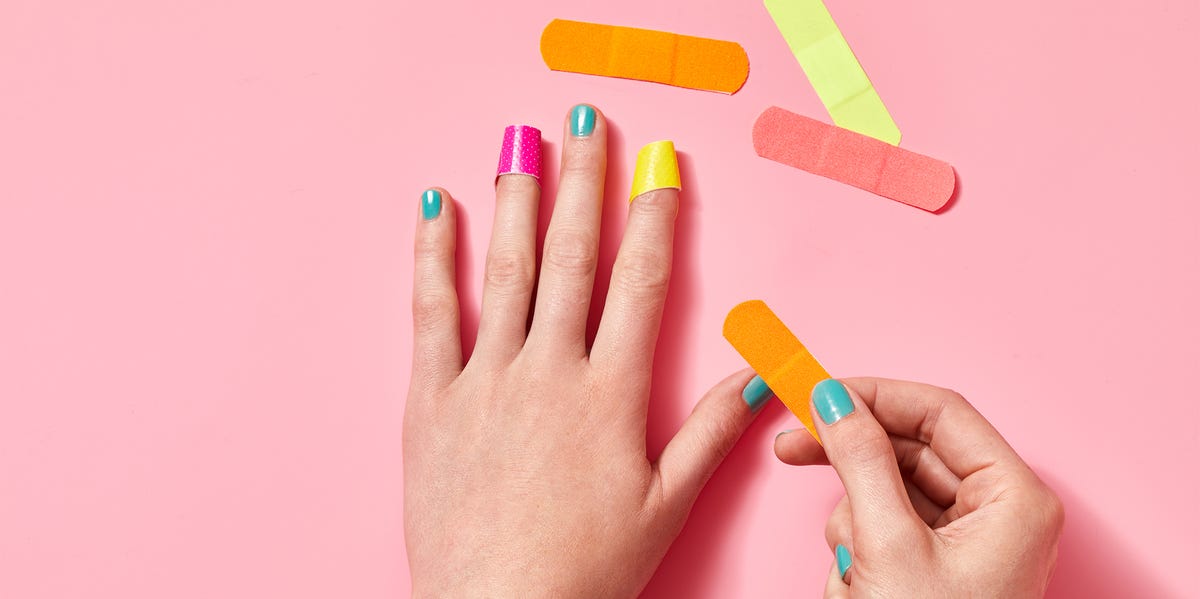Core Concepts
Chronic nail-biting poses health risks and requires conscious effort to overcome, with triggers rooted in emotional and environmental factors.
Abstract
Nail-biting is a common habit affecting 20-30% of the population, leading to health risks like infections. Strategies to stop include identifying triggers, keeping nails short, using deterrents, and seeking professional help if needed.
Press-On Nails May Be the Best Defense Against Nail Biting
Stats
Nearly 20 to 30% of the population have a nail-biting habit.
Nail-biting can lead to skin infections and permanent nail disfiguration.
Various strategies like applying foul-tasting lacquer or covering nails physically can help stop the habit.
Quotes
"Nail biting can cause open or raw skin exposed to bacteria in the mouth." - Joshua Zeichner, M.D.
"If you don’t like the taste, then you will stop putting it in your mouth." - Dr. Zeichner on using bitter-tasting lacquer as a deterrent.
Key Insights Distilled From
by at www.goodhousekeeping.com 06-02-2021
https://www.goodhousekeeping.com/health/a32802906/how-to-stop-nail-biting/
Deeper Inquiries
What psychological factors contribute to nail-biting habits?
Nail-biting, also known as onychophagia, is often linked to psychological factors such as stress, anxiety, boredom, and emotional distress. Research suggests that there may be a genetic component to this behavior, but environmental triggers play a significant role in its onset. Body-focused repetitive behaviors (BFRBs) like nail-biting are often seen as coping mechanisms for individuals dealing with various emotions or situations. For example, some people may engage in nail-biting when feeling underwhelmed or stressed. Understanding these underlying psychological factors is crucial in addressing and overcoming the habit.
How effective are mobile applications in helping individuals quit nail-biting?
Mobile applications designed to help individuals quit nail-biting can be quite effective tools in breaking the habit. These apps offer features such as reminders, tracking progress, setting goals, and providing support through notifications or alerts. By using technology like smartwatches or specialized devices that detect specific behaviors associated with nail-biting, users can receive real-time feedback and intervention to prevent engaging in the habit. The HabitAware bracelet is one example of a device that vibrates when it detects motions characteristic of nail-biting behavior. Such technological aids take much of the work out of self-monitoring and provide immediate cues for individuals to redirect their actions.
How does stress play a role in triggering nail-biting behavior?
Stress is a significant trigger for many individuals who engage in nail-biting behavior. When faced with stressful situations or feelings of anxiety, some people turn to activities like biting their nails as a way to cope or alleviate tension. Nail-biting can serve as a subconscious response to manage overwhelming emotions or thoughts by providing temporary relief or distraction from stressors. In times of heightened stress levels, individuals may find themselves more prone to engaging in this habitual behavior without even realizing it. Addressing underlying stressors and finding healthier coping strategies are essential steps in managing and reducing the urge to bite nails.
0
